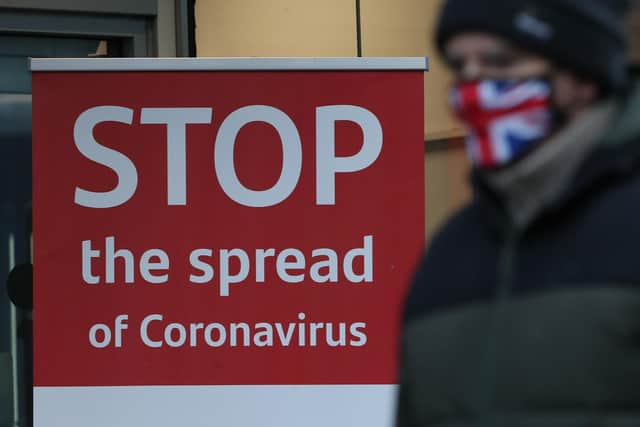Scottish hospitals facing 'very severe situation' as Covid-19 takes its toll
As of Tuesday, 1,717 people are in Scottish hospitals being treated for Covid-19, almost 200 more than the peak during the first wave in April.
NHS Ayrshire and Arran has seen the number of patients in hospitals outstrip planned Covid-19 capacity for more than a week, while NHS Lanarkshire breached its capacity on Monday for the first time.
Advertisement
Hide AdAdvertisement
Hide AdThe country’s biggest health board, NHS Greater Glasgow and Clyde, has seen the number of Covid-19 patients rise by more than 100 in less than a week, with hospitals now at 90 per cent of Covid-19 capacity.


Speaking at her daily coronavirus briefing, the First Minister said the overall capacity in Scotland's hospitals was helping it cope from the added pressures of Covid-19.
She said: "This is a very, very severe situation. It is more severe than any situation our health service has faced certainly in my time in government and I spent a significant chunk of time in government as health secretary.
"In general, hospitals manage their capacity in winter periods every year and that will mean health boards using capacity across their different hospital sits if they’ve got multiple hospital sites. Last week we saw Greater Glasgow and Clyde do that.
"It will also mean … if there is a particular hospital or particular health board where the health board cannot manage the capacity within its own boundaries then mutual aid will kick in.
"That could mean somebody who needs hospital care in Lanarkshire going to Glasgow or somebody in the Borders going to Glasgow.
"It’s one of the advantages of having a relatively small country that we can manage that capacity in an overall basis, but it is very, very stretched right now.
"The health service will seek to manage it and the government will support them to do that, but more than that at any time of any of our lifetimes, it is down to all of us to help the health service.”
Advertisement
Hide AdAdvertisement
Hide AdProfessor Jason Leitch, the national clinical director, said that as the number of Covid-19 patients continue to increase, more elective procedures will have to stop and said the situation was “very fragile”.
He said: "Last winter we had 13,000 beds and no Covid, this winter we have 13,000 beds and Covid.
"We can flex inside that, but the difficulty is other stuff has to stop. Other things that need those hospital beds, require to be stopped in order for us to treat Covid patients.
"People shouldn’t be scared that the health service is full or overwhelmed, it isn’t. It is very fragile and you just need to look a few hundred miles south to see what happens when it gets even more fragile and you hear people having to limit the amount of oxygen patients can get, you see people moving to environments where intensive care is not really as it should be because it’s not in an ICU, and the Nightingale [hospital is] reopening for inpatients, not just for outpatients.
"We need to avoid that as much we possibly can in Scotland and again that’s the restrictions.”
A message from the Editor:
Thank you for reading this article. We're more reliant on your support than ever as the shift in consumer habits brought about by coronavirus impacts our advertisers.
If you haven't already, please consider supporting our trusted, fact-checked journalism by taking out a digital subscription.
Comments
Want to join the conversation? Please or to comment on this article.